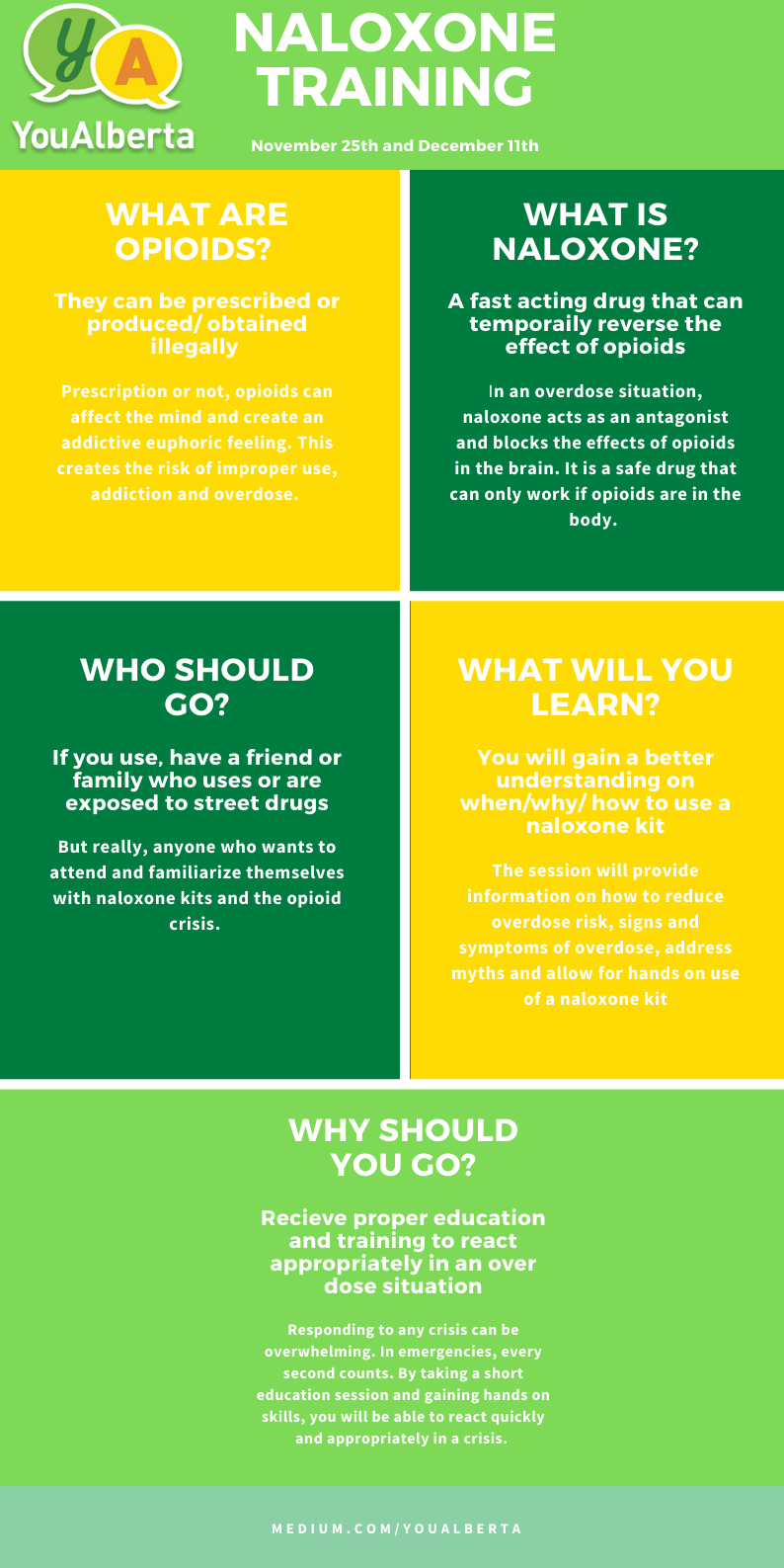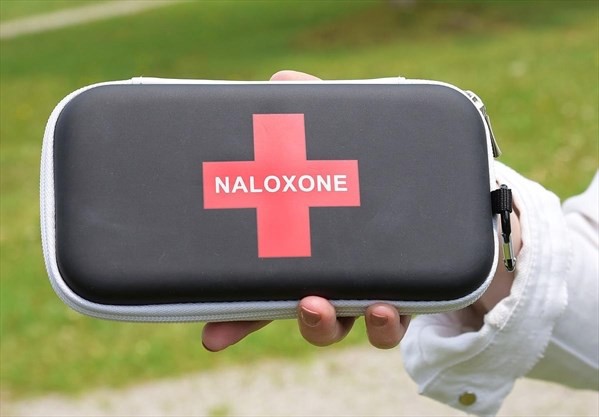
We really don’t know what could happen in a day. We wear our seatbelts recognizing that every time we drive somewhere, we could get into a life-altering accident. We wear our helmets when we ride our bikes because even though we don’t plan on getting a traumatic brain injury, the risk is there. Likewise, opioids are used being used throughout Alberta despite the risk of overdose and death.
The use of opioids to a point of overdose happens for a variety of reasons, including take opioids with other sedating substances, or taking opioids with unknown, more potent, substances mixed in. From my experiences as a pharmacy student working with different clients struggling with opioid dependency or addiction, there is no way to generalize who may be struggling with this. People from all different walks of lives with different stories struggle with opioid dependency. You may know someone yourself at risk of opioid overdose. You may even have your own stories and experiences of an opioid overdose, where you wish you had the tools to help.
There is hope. By recognizing the signs and symptoms of overdose, carrying and understanding when to administer naloxone kits, we can make those at risk of overdose safer. Naloxone kits are available free of charge at various pharmacies including right on campus at the University Health Centre Pharmacy. The University Health Centre will also be hosting two free naloxone training sessions on November 25 and December 11, available to all staff, faculty and alumni!November 25 and December 11, available to all staff, faculty and alumni!
When pharmacies officially started to give out naloxone kits, I was in my first year and I actually had no clue what naloxone was. But now that I’ve done naloxone training, distributed naloxone kits, and have been exposed to the prevalence of opioid use, I have a better understanding about why naloxone training is important.

Opioids are prescribed pain-relieving medications such as fentanyl, morphine, codeine, oxycodone, and hydromorphone. Opioids can also be produced or obtained illegally and are common components of the street drug supply. Highly potent fentanyl has begun to contaminate the supply in an unknown quantity, which means that people are often taking a much higher dose of opioids than they think. Prescription or not, opioids can affect the mind and create a “high” feeling which creates the risk of improper use and addiction.
Naloxone is a fast-acting drug that temporarily blocks the effects of opioids in the brain, thereby preventing damage to the brain and death. Naloxone is not a drug that can be abused as it only works if there are opioids in a person’s system. This also means that the effects of drugs that are not opioids, such as crystal meth or cocaine, cannot be reversed by naloxone.
Officially, anyone who uses, or knows someone who uses, street drugs or prescription opioid drugs. Personally, I think understanding when and how to use a naloxone kit is similar to getting first aid and CPR training. You don’t really know if you will ever need to use it, but it is nice to understand what to do if an emergency occurs! So really, I would encourage anyone who wants to attend to go.
Responding to an overdose is overwhelming. In fact, responding to any crisis situation is difficult, especially if you do not have the knowledge on how to react. I have a very prominent memory of my older sister experiencing an anaphylaxis reaction. Despite having an EpiPen, I was unsure how to administer an EpiPen as I had never been shown. In emergencies, every second counts. Having the knowledge to recognize an emergency, as well as having had a proper training on how to react, is essential to keeping someone alive. It would be hard for me to react quickly and correctly in an overdose situation if I ere reading the instructions for how to use naloxone for the first time.
A naloxone training session provides information about how to reduce the risk of overdose, the signs and symptoms of overdose, myths (i.e. naloxone does not work for cocaine), and the correct emergency responses. There’s also hands-on use of a naloxone kit, and the session is an opportunity to ask any questions you may have on naloxone or opioids.
Opioids are a contentious topic. The use of opioids and managing opioid addiction is complex and requires a multifaceted response. However, an understanding of how to use naloxone is a great step towards decreasing the adverse effects that may result from using opioids.